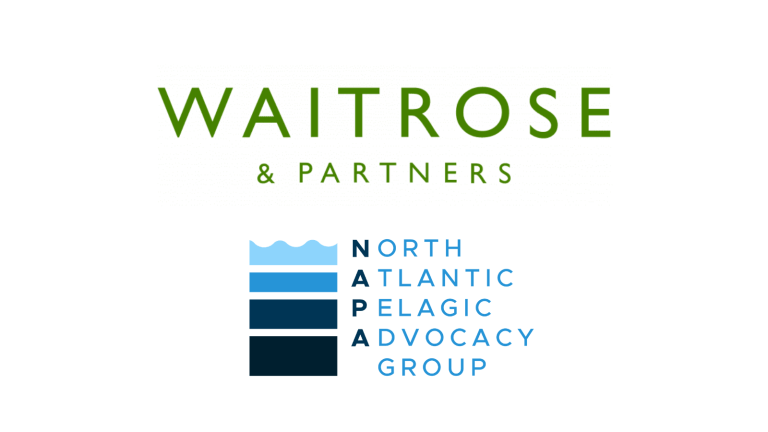Date of issue: 1 March 2023
Mackerel, herring, and blue whiting are three of the Northeast Atlantic’s most lucrative fish stocks. Long-thought of as one of the most sustainable fishing areas in the world, ongoing disputes between Coastal States in the Northeast Atlantic are risking the health of these valuable pelagic stocks – and driving business to speak-up on the consequences.
So, what’s the problem with pelagics?
These stocks know no political borders. Their ranges straddle the Exclusive Economic Zones of seven Coastal States and extend into international waters. In recent years, their distributions have changed with a changing climate, which has created a series of management challenges for how catch limits are set and monitored. This is because fishing quotas need to be divided between the seven Coastal States, but all seven of these nations want to maximise their individual shares.
It is the responsibility of these Coastal States to play fair and work together to agree on how much of the total, combined catch each of them will take, to ensure that the stocks are fished at a sustainable level. Over the last decade, negotiations between the seven States have routinely broken down, leading to some States failing to adhere to their obligations to fish responsibly, with resulting negative impacts on stocks and the wider ecosystem.
The result? Overfishing.
Working as part of the North Atlantic Pelagic Advocacy Group (NAPA), leading UK retailer Waitrose, which is known for its strong commitments to nature and the environment, has called on the Coastal States to collaborate to ensure that catches do not creep above sustainable levels.
Melissa Tillotson, Senior Aquaculture and Fisheries Manager at Waitrose and Partners, commented:
“Waitrose has had a responsible seafood strategy in place for more than 25 years. This means we’ll only partner with fisheries that share our approach to responsible sourcing, and our ambition of helping secure a sustainable future for wild fisheries and the seas more broadly.
“We’re committed to achieving our goal whereby 100% of the fish and shellfish we sell is independently certified as responsibly caught, or farmed to a recognised third-party standard. We are deeply concerned by the lack of sustainable management of Northeast Atlantic mackerel, Atlanto-Scandian herring, and blue whiting which has led to overfishing of these stocks.”
NAPA is a market-driven coalition of more than 60 leading retailers and supply-chain businesses from across the world, who are publicly committed to the responsible sourcing of sustainable seafood. At present, they are united by a common problem: the loss of their supplying fisheries’ sustainability certifications as a result of overfishing in the Northeast Atlantic. This poor management and certification loss is jeopardising their ability to meet their commitments to people and the planet.
Tillotson added:
“As a founder member of the North Atlantic Pelagic Advocacy Group (NAPA), we believe that this unique collaboration can help us meet our responsible seafood commitments.
“It is our collective duty to preserve fish stocks for future generations, and we know our customers agree, whether they buy canned, frozen or fish from our service counters.
“We’re calling upon the Coastal States to work together to agree on sustainable catch shares, follow scientific advice and commit to long-term management. Anything less will present significant challenges in our future sourcing of these species.”
For mackerel, the need for an agreement is particularly pressing. During the annual talks held between the Coastal States in 2022, the seven nations set themselves a deadline to reach a final agreement on the sharing of mackerel quotas before 31st March 2023. If achieved, this would mean collective agreement on allocations that, when summed together, do not exceed the sustainable catch level recommended by scientists.
The first Coastal States meeting on mackerel took place in London in early February 2023. During the meeting, all seven States reiterated their commitment to reaching agreement and acknowledged that compromise will be necessary. Two more mackerel working groups are planned – in early and late March.
This deadline of 31st March is now looming, as NAPA Project Lead, Dr Tom Pickerell, highlighted:
“Northeast Atlantic mackerel is once again seemingly being taken seriously by the Coastal States responsible for its recent history of mismanagement and overexploitation. But their constructive words only count as lip service unless they work together to each take their fair share, and do so quickly. Mackerel management matters and so NAPA is determined to hold the Coastal States to their deadline. There are now four weeks to go, and we are counting.”
With the eleventh hour for mackerel imminent, NAPA is calling time on unsustainable fishing.

NAPA featured in The Guardian newspaper on 17 November 2023 as part of the publication’s...
Read More >
Date of issue: 29 March 2022 Three more major organisations have pledged their support to...
Read More >
2024 has been a big year for NAPA! It saw us shaking up the programme...
Read More >